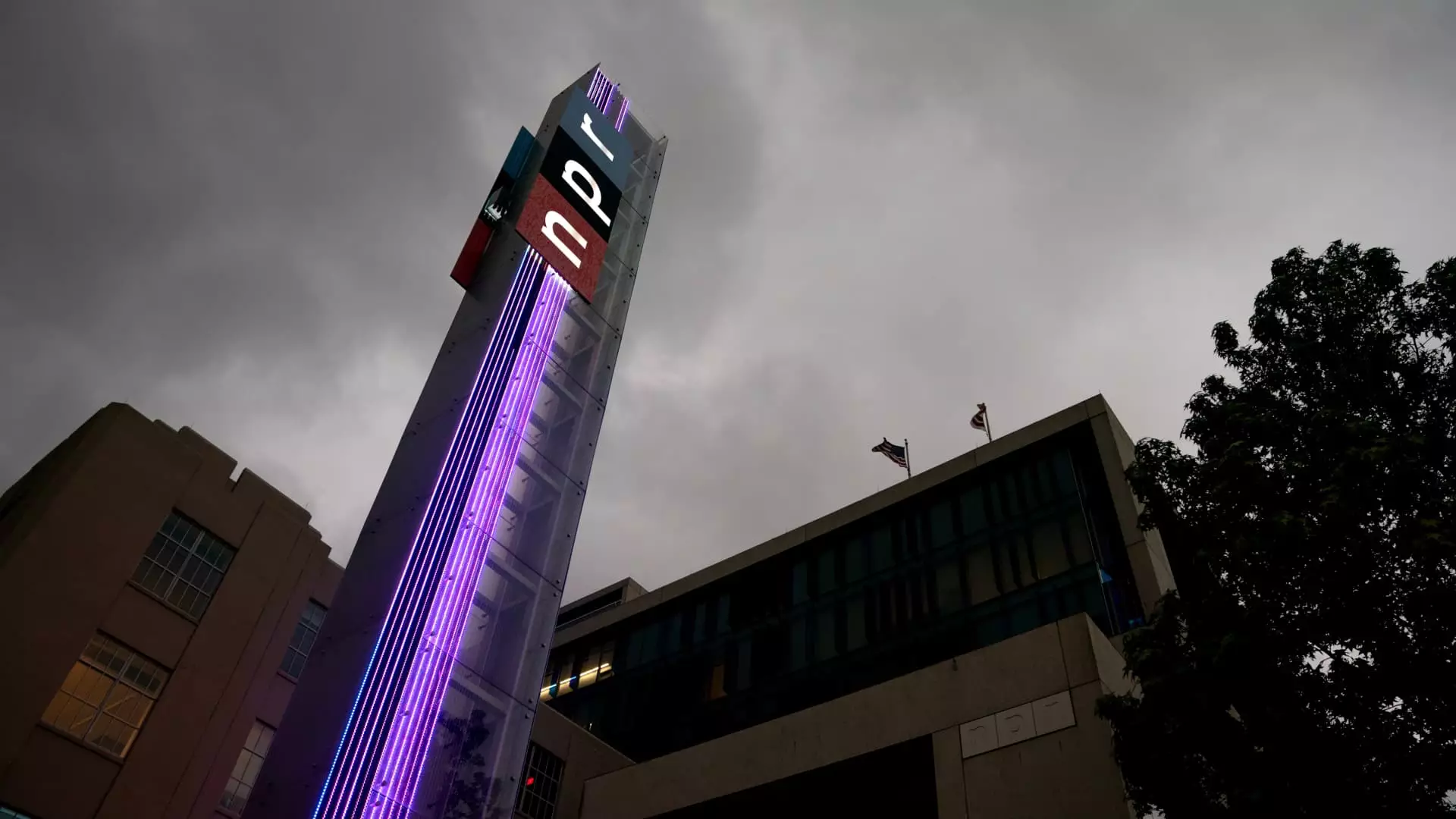In an alarming display of power and a blatant disregard for constitutional values, National Public Radio (NPR) has taken a stand against President Donald Trump’s executive order that seeks to cut federal funding to public broadcasters. The implications of this move are troubling, not just for NPR but for the broader media landscape in America. When the government begins to dictate the financial lifeline of media organizations, it poses a serious threat to the very essence of a free press and its role in a democratic society.
The First Amendment is not merely a bumper sticker slogan; it embodies the principles of free speech and a free press that are foundational to American democracy. Trump’s executive action appears to be not just an assault on NPR but a cunning strategy to silence opposing viewpoints under the guise of fiscal responsibility. In essence, this order is a weaponization of funding aimed at organizations that dare to challenge the status quo or present narratives that the current administration finds “biased.” This is a precedent that cannot be taken lightly—it illustrates how far political leaders might go to eliminate dissent against their agendas.
The Implications of Defunding Public Media
NPR’s lawsuit does more than stridently challenge Trump’s authority; it highlights the grave consequences of defunding public media. With substantial cuts in federal funding, NPR and its affiliate stations would risk losing their ability to perform investigative journalism and provide essential cultural programming that is often overlooked by mainstream media outlets. The argument laid out by NPR is not simply about budget lines—it’s about the existential threat to a valuable institution that serves millions of Americans seeking reliable news in our fast-paced, often chaotic media environment.
Currently, only 1% of NPR’s revenue derives from federal funding, and yet, as the lawsuit asserts, this funding is crucial for maintaining the journalistic independence that federal dollars are supposed to support, not undermine. By severing this lifeline, the administration aims to create a chilling effect on journalistic integrity. The very notion that government funds can control the narratives presented by public broadcasters subverts the foundational ideal of an independent press. It’s not merely about how public radio is financed; it’s about safeguarding journalism as an outlet for the public good.
Painting Media as Partisan: A Dangerous Narrative
In their response to this executive order, the administration’s rhetoric of “wasting taxpayer dollars” and “partisan media” is a dangerous simplification of media dynamics. Such accusations transform NPR and PBS into scapegoats without addressing the multifaceted landscape of media funding and consumption that exists today. Corporate sponsorship comprises a significant portion of NPR’s budget, yet such funding rarely receives the same scrutiny. By targeting public funding, Trump blatantly elevates the pretense of fiscal prudence while aiming at the heart of journalistic autonomy.
This executive order doesn’t just punish NPR; it sends a clear message to other outlets: “Challenge us, and your resources will be jeopardized.” It introduces a system where federal funding becomes a tool for political retaliation rather than a means of fostering diverse voices. This is not just a battle for NPR’s survival; it’s a pivotal moment in how we perceive freedom of expression in our nation.
The Role of the People in this Fight
What may be more alarming, however, is the potential complacency among the public regarding this issue. NPR represents countless journalists whose dedication to unbiased reporting is vital for an informed populace. Citizens must recognize that the stakes in this legal battle are monumental, impacting not just what is heard on the airwaves, but how grievances can be voiced within society. Public discourse can’t thrive in silence; it needs robust dialogue and a platform for diverse perspectives.
As this lawsuit unfolds, it serves as a rallying point for all defenders of independent journalism and democratic values. Whether or not one listens regularly to NPR, the implications of this order resonate for all Americans who cherish a free and independent press. The responsibility lies not just with the journalists in the trenches, but with every voter and stakeholder in the democratic process: we must protect our right to an independent, fearless press that serves to enlighten rather than dictate to the public.


Leave a Reply